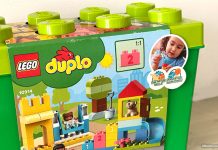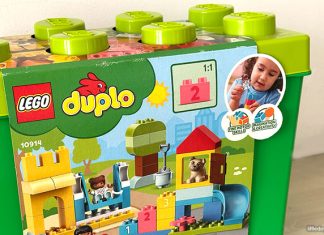
If you are feeling fatigue from parenting, you are not alone. Aside from the mental load we face, power struggles can leave us demoralised, frustrated and alone. What can we say to our child in the midst of a conflict? How do we not strain the relationship yet be firm and empathetic?
Rather than “Listen to me, I’m your _______” or resorting to a threat, we can use a less assertive tone and “dictatorial words”. After all, we are parenting little ones who struggle with their emotions and thoughts just as we would sometimes. Defusing the situation is key.
De-escalating Conflicts with Your Child
Here are some scripts to help you de-escalate a conflict with your child.
1. Think of We, rather than You versus Me

Help your child out through a task he or she perceives as challenging rather than fight over it. If it’s an unfinished chore or a piece of homework that is tough, think of teamwork.
MID AUTUMN FESTIVAL: Lanterns, Lights and Festive Fun
GIVEAWAY FOR ENEWSLETTER SUBSCRIBERS: LEGO DUPLO Deluxe Brick Box
“Let us work through this part together and you can finish the rest on your own.”
“We can tidy up this part of the room, then the rest is easily done.”
“We have to go back for a nap before baby gets grumpy.”
2. Be Respectful & Calm
Model respectfulness and calmness by calming yourself down. Take deep breaths, walk away if you need to and then come back to your child. If you need a minute, tell your child you need to calm down before speaking to him or her. This will help you manage the situation in a calm manner.
Similarly help your child to calm down.
“I need to calm down, I will be back, so please stay in this room where it is safe.”
“Let’s breathe.”
“Close your eyes and hug yourself.”
3. Give a Reason & Explain it Patiently
Children often lack the perspective we have, or they could have other interesting perspectives too. State your reason for your request calmly and explain it. When the action affects another person, point out the person’s emotions and the consequence as well.
“It is getting late, Daddy will miss us if we are not home yet.”
“If you keep pulling the toy, the whole shelf will topple on you and hurt you.”
“She does not like the way you are pushing, she can get hurt.”
4. Note down the Request
If the conflict is due to an unmet desire, note down the request and aim to fulfil it in future.
“I know you really want ice-cream, but it’s dinner time, we can have it tomorrow at 4pm. Let’s write it down.”
“If you want more time at the playground, we can do that next Monday right after your class.”
“Since you really like this toy, you can choose to get it for your birthday in 2 months. I’d make a note so we can come back and get it.”
5. Set a Timer
Use a timer so that you can prepare your child for the next activity or the next item on the agenda. There is no arguing – with the clock!
“Once the timer rings, your time to _____________ will be up and we will need to _______.”
“Now watch the alarm, once it tells us time is up, you have to _________.”
De-escalate The Tension, Connect & Correct

Photo by Ivan Samkov: https://www.pexels.com/photo/mother-and-son-hugging-4624970/
Conflict makes it hard for parents to connect and correct. Hence, we will need to de-escalate the situation first before calmly teaching and correcting. Parenting often challenges one’s temperament and it is definitely a character-building journey!





















